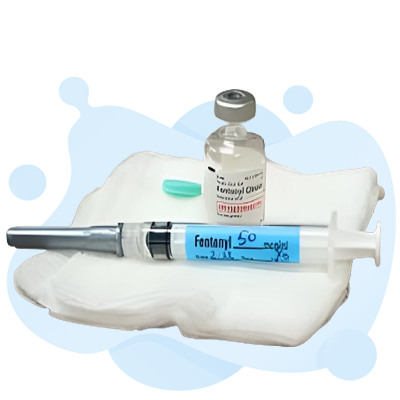
The European Diploma in Anesthesiology and Intensive Care (EDAIC) is a respected anesthesiology certification and intensive care certification. It’s approved by the European Board of Anaesthesiology (EBA, UEMS) and the Council for European Specialist Medical Assessments (CESMA, UEMS). This European medical examination checks the skills and know-how of anesthesiologists and critical care specialists. Its goal is to set a high standard of healthcare knowledge across Europe.
The EDAIC is not only known in Europe. It’s also recognized worldwide. The World Federation of Societies of Anaesthesiologists (WFSA) supports it. The European Society of Anaesthesiology and Intensive Care (ESAIC) works together to carry out this test globally.
The EDAIC is a key test for those finishing training in anesthesiology and intensive care. It has two parts. The first covers the basics of anesthesiology and intensive care. The second part focuses on clinical practice. Both test what you know and how you manage care.
The EBA (UEMS) and CESMA (UEMS) support the EDAIC. This shows it’s at the peak of medical testing. Getting approval from top European medical groups makes the diploma respected worldwide. It’s a must-have for anesthesiologists and intensive care experts.
The EDAIC has two parts you must take, Part 1 and Part 2. Part 1 has two tests with multiple-choice questions. Part 2 is a face-to-face exam where you answer questions out loud. There’s also a test you can take online (OLA) for extra practice and another part (ITA) to check your progress as you study.
In Part 1, the focus is on the science behind anesthesiology and clinical topics. Part 2’s oral exam uses visuals and real-life medical questions. This structure gives a full assessment of your skills and knowledge.
| Examination | Full Fee | Middle-Income Countries | Mandatory Countries |
|---|---|---|---|
| EDAIC Part 1 | €360 | €270 | €180 |
| EDAIC Part 2 | €560 | €420 | €280 |
To take the EDAIC Part 1, you just need a medical degree. For the Part 2, you must pass the Part 1. Also, you should have an anesthesiology certification from any country. Or, be in the final year of your anesthesiology training in a European WHO member state. Some graduates from Pakistan need the FCPS or an equivalent for the Part 2.
The European Society of Anaesthesiology and Intensive Care (ESAIC) offers many tools for the EDAIC exams. They include a syllabus, a diploma guide, the BSAC, an e-learning platform, webinars, and sample questions for both parts. These help you study the right topics and get familiar with the exams’ style and content.
| Exam Component | Mandatory Countries | European Middle-Income Countries | Other Countries |
|---|---|---|---|
| EDAIC Part I | €180 (Members) | €270 (Members), €330 (Non-Members) | €360 (Members), €420 (Non-Members) |
| EDAIC Part II | €280 (Members) | €420 (Members), €480 (Non-Members) | €560 (Members), €620 (Non-Members) |
| OLA/HOLA | €50 – €70 (Depending on Country and Membership Status) | €50 – €70 (Depending on Country and Membership Status) | €50 – €70 (Depending on Country and Membership Status) |
The ESAIC resources offer great help in passing the EDAIC exams and reaching your career aims.
The European Diploma in Anesthesiology and Intensive Care (EDAIC) shows someone is a top expert in anesthesiology and critical care. It’s backed by major medical groups in Europe. This test checks how well a person knows anesthesiology and critical care. It makes sure everyone meets a high standard of care.
Taking the EDAIC helps doctors become better and stand out in their field. They get lots of help to study from the European Society of Anaesthesiology and Intensive Care (ESAIC). This support makes it easier for them to earn this respected diploma.
In Spain, many centers have taken the EDAIC test, with over 10% of the world’s candidates for Part 1 seen between 2012 and 2016. The passing rates there match global numbers. This shows that Spanish doctors are well-trained in anesthesiology and critical care. They also do well on the test. Each year, a good number of doctors in Spain get this diploma. It proves Spain is dedicated to excellent healthcare in this area.